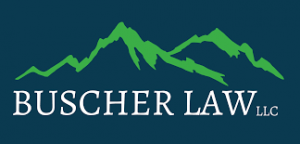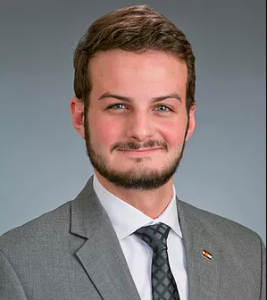
Authored By

Alex Buscher

Andrew Janson.
CONTACT
Phone720-258-6940
Email firm@buscherlaw.com
Address
3900 E Mexico Avenue
Suite 300
Denver, CO 80210
Disclaimer: The information provided in this article is intended only for educational and general information purposes. The information provided is not intended as nor constitutes legal advice. This article should not be relied upon as a legal opinion.
On August 21, the DEA published an interim final rule (“IFR”), effective immediately, that caused alarm in the cannabis industry. The stated purpose of the rule was to correct inconsistencies between the DEA’s regulations and the statutory amendments made by the Agricultural Improvement Act of 2018 (“AIA”), but what caught people’s attention was the reiteration that extracts above 0.3% Delta-9 THC are marijuana, as well as the following short paragraph:
“The AIA does not impact the control status of synthetically derived tetrahydrocannabinols … because the statutory definition of “hemp” is limited to materials that are derived from the plant Cannabis sativa L. … All synthetically derived tetrahydrocannabinols remain schedule I controlled substances.”
Numerous sources reported that following the rule, hemp-derived Delta-8 THC was no longer legal. But is this really the case? Likely not since Congress contemplated and dealt directly with this issue when including isomers, derivatives, extracts, and cannabinoids from hemp in the federal definition of hemp. This makes the distinction between “synthetically derived” and “naturally derived” irrelevant when dealing with substances derived from hemp with a Delta-9 THC concentration of no more than 0.3%. Additionally, Delta-8 THC likely does not qualify as a “synthetic cannabinoid” anyway, per DEA’s own past guidance and testimony.
Delta-8 THC, the AIA, and DEA’s IFR
The AIA (also known as the 2018 Farm Bill) exempted hemp and hemp-derived substances from the definition of marijuana found in the Controlled Substances Act (“CSA”). Hemp is defined as “the plant Cannabis sativa L. and any part of that plant, including the seeds thereof and all derivatives, extracts, cannabinoids, isomers, acids, salts, and salts of isomers, whether growing or not, with a delta-9 tetrahydrocannabinol concentration of not more than 0.3 percent on a dry weight basis.” 7 U.S.C. § 1639o. This had the effect of federally descheduling hemp and its derivative cannabinoids and other substances, including CBD and any substance derived from it like Delta-8 THC. It did not legalize hemp nationwide, nor did it legalize all uses of hemp and hemp-derived cannabinoids.
The DEA rule is of particular concern for Delta-8 THC because Delta-8 THC occurs naturally in only trace amounts. As a result, isomerization—the process of transforming the chemical structure of one molecule into another with the same chemical formula, called an isomer—is necessary to obtain usable amounts of Delta-8 THC. Both CBD and Delta-8 THC have the same chemical formula (C21H30O2) making CBD a prime candidate for isomerization into Delta-8 THC.
Here, it is also worth mentioning a related and equally important issue possibly implicated in the DEA’s rule: should hemp processors worry about work-in-progress extractions that exceed the Delta-9 THC limit? As with the Delta-8 THC question, the answer is likely no, as we explain in the section at the end of this article.
Hemp-Derived Tetrahydrocannabinols Have Been Expressly Legalized Through The AIA, Making The Distinction Between Natural And Synthetic Irrelevant.
Along with descheduling hemp plants, the AIA also expressly exempted “tetrahydrocannabinols in hemp” from Schedule I of the CSA. 21 U.S.C. § 812(c)(17). Recall that the definition of hemp includes isomers, extracts, and derivatives and is based upon the percentage of Delta-9 THC alone. Although isomers are naturally occurring structural variants of the same molecular formula, they are also commonly made from an organic source, like hemp extract, in a lab. Accordingly, the inclusion of “isomers” in the definition of hemp indicates that Congress contemplated the creation and existence of isomerized compounds including Delta-8 THC, and therefore knowingly dealt with them in the AIA.
Thus, as both an isomer and a derivative of hemp-derived CBD, Delta-8 THC is not a Scheduled substance and is outside the purview of the DEA. As long as a Delta-8 THC extract is hemp-derived and contains less than 0.3% Delta-9 THC, it is legal under federal law. This is true even the process of isomerization is ultimately deemed to be “synthetic,” since the federal CSA definition of hemp would control over a DEA regulation.
Furthermore, hemp-derived Delta-8 THC is likely not a “synthetic cannabinoid” according to DEA’s own guidance and testimony. Although the CSA does not define “synthetic,” information about synthetic cannabinoids from both the Office of National Drug Control Policy and the DEA itself indicates that synthetic cannabinoids are “man-made chemicals,” usually added to plant material (e.g. K2 or Spice) and are non-organic and made in a lab setting. A DEA agent is also on record explaining that “synthetic cannabinoids are designer drugs developed from a nonorganic source and intended to produce effects similar to THC, the active ingredient in marijuana.” United States v. Gross, 661 F. App’x 1007, 1010 (11th Cir. 2016). Additionally, an FDA guidance document suggests synthetically produced additives are “man-made” and “not found in nature.”
These definitions align with the common-sense notion that “synthetic cannabinoid” is intended to refer to imitation drugs synthesized entirely in a lab, rather than the result of mere processing of organic compounds into derivatives covered by the AIA. Accordingly, even if Delta-8 THC is produced in larger quantities through a chemical process, it isn’t a “synthetic cannabinoid” in the context of the CSA because both the beginning and end materials used are organic, naturally occurring, and derived from lawful hemp.
Conclusion: Is Delta-8 THC Legal?
The short answer is yes; but that doesn’t mean the DEA won’t arrest people in the meantime. The true meaning of “synthetic cannabinoid” is ultimately moot because the language in the 2018 Farm Bill is so clear. Delta-8 THC is a naturally occurring derivative and isomer of a cannabinoid extracted from legal hemp, rather than a lab-made chemical. To make it clearer, the AIA went one step further and specifically excepted “tetrahydrocannabinols in hemp” from Schedule I. 21 U.S.C. § 812(c)(17).
Delta-8 THC fits neatly within exceptions to scheduling as both a hemp-derived tetrahydrocannabinol, and as an isomer of CBD, confirming its legality under the AIA. That said, Delta-8 THC should be approached with some caution. Although we believe it to be legal for the reasons explained above, the DEA will likely raid first and fight in court later.
A Note On Work-In-Progress Extracts: THC Concentrations Greater Than 0.3% During Extraction Are Also Implicitly Approved By Congress’s Passage Of The AIA.
Under the AIA, whether a harvested cannabis plant is “marijuana” controlled by the CSA or “hemp” exempted from it depends entirely on the dry weight percentage of Delta-9 THC. This can cause issues for processors and cultivators because the concentration of Delta-9 THC is not constant at all times during the plant’s life cycle. During extraction procedures specifically, the calculated percentage of Delta-9 THC will increase as the plant is stripped of excess water and plant material. As a result, the Delta-9 THC concentration will unavoidably rise above the 0.3% threshold set by the AIA, even in extremely low-THC strains of hemp.
In these situations, the DEA would be within its authority to bring enforcement actions against these processors because they are technically working with marijuana. If the DEA did so, extraction of any hemp-derived compound would be impossible to do legally since Delta-9 THC naturally becomes more concentrated when extraneous plant material is removed during the extraction process.
The only way to reconcile this practical conflict with the language of the AIA is to conclude that because Congress expressly included “extracts” in the definition of hemp, Congress necessarily intended that work-in-progress extracts exceeding the 0.3% THC concentration limit do not violate the CSA, AIA, or any DEA regulation. Any other interpretation would outlaw the production of any extract since it is virtually impossible to avoid going over the limit at intermediate steps in the extraction process.
Buscher Law provides effective, efficient, and affordable legal representation to businesses and individuals in the hemp industry. Contact us today for a free consultation.




